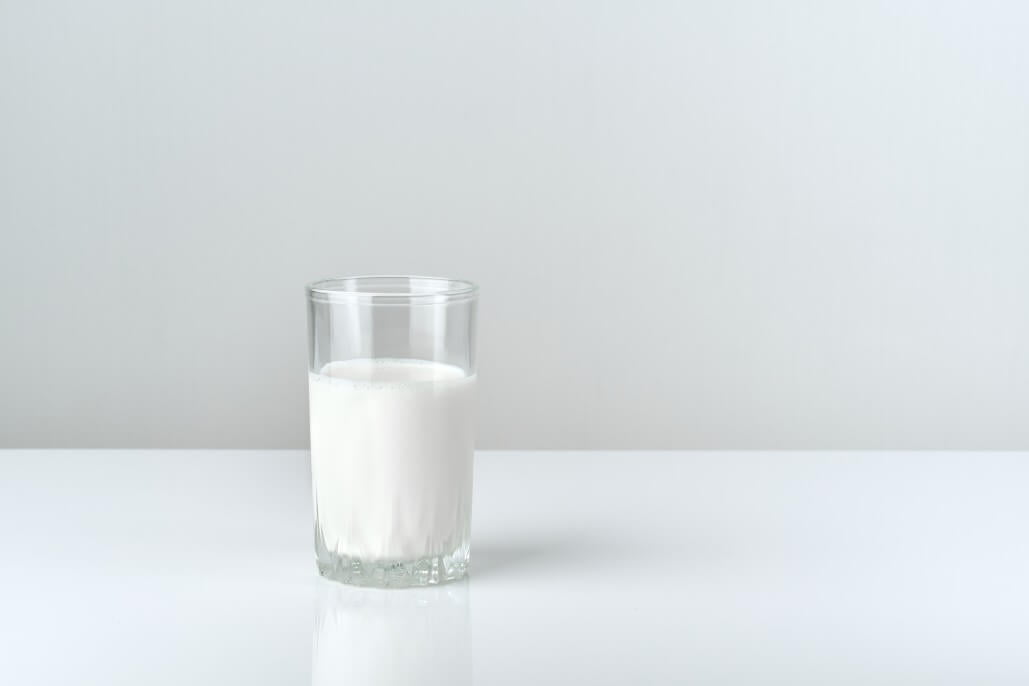Gas is a frustrating side effect that can create discomfort or pain. Sometimes it's easy to identify a food that has given us excess gas, but other times it's more challenging to work out.
Almond milk does not cause gas in the majority of people. However, some conditions such as nut allergies or intolerances can cause an individual to become bloated after drinking this beverage.
Continue reading to find out if and why almond milk causes gas.
Explore the different ingredients, along with their effects on the body. And get the answers to some frequently asked questions.
Can Almond Milk Cause Gas?
Yes, it's possible for almond milk to cause bloating and gas. This is primarily due to the stabilizers that producers add to the milk to extend its shelf life.
Among these stabilizers is carrageenan, which has gained a reputation for inflammation, bloating, and stomach ulcers.
Other stabilizers include Gellan Gum and Lecithin, which can be problematic for those with intolerances.
Gellan gum is a plant-based alternative to gelatin, which grows naturally on water lilies.
While one study linked gellan gum to an abnormal skin lining, several other institutes (such as the European Food Standards Agency) have disputed this and demonstrated no impact of gellan gum on overall health.
And the same is valid for lecithin.
There's a chance that this additive could cause stomach upsets or nausea, but it remains unlikely for most individuals.

How to Determine if Almond Milk Is Making You Gassy
A common problem people face when determining what makes them gassy is demonstrated in the following example.
An person switches from dairy to almond milk because they assume they have a lactose intolerance that causes them to have gas.
But the milk is not the issue; instead, it's the product they're adding the milk to (such as cereal).
So, when they make the switch, the bloating or gas continues, and they're none the wiser.
The first step to determining if almond milk makes you gassy is to isolate the different elements of your drink or meal.
If you consume almond milk every time you have a cup of tea or coffee, try separating the components and monitoring your reaction.
It's just as likely that the hot drink could be the cause of your gas. And the same goes for other products such as fruit or cereal.
If you suspect that almond milk gives you wind, isolate it from the other foods and drinks you consume and see if your symptoms persist.

Ingredients in Almond Milk That May Cause Gas
The main ingredients of unsweetened almond milk are almonds and water; however, sweetened varieties contain high amounts of sugar, which could lead to gas (though this is unlikely).
Other ingredients in a store-bought almond milk products include carrageenan, lecithin, artificial sweeteners, gellan gum, and natural flavorings.
Most of these are unlikely to cause a reaction in small amounts, but it's certainly not impossible that you have an intolerance to one or more of the ingredients.
Among the main culprits for controversy is carrageenan.
While research is far from conclusive, there are suggestions that this additive could cause digestive problems, irritable bowel disease, or inflammation - and this could be the cause of your bloating.
Some people are also intolerant to almonds themselves.
While only a few are present in the typical carton of almond milk, it's still enough to affect anyone with an intolerance.

How to Prevent Almond Milk From Making You Gassy
One of the first steps to prevent almond milk from making you gassy is to check which variety you are consuming.
If you're drinking a shelf-stable version, it will contain more filler ingredients and preservatives than the refrigerated version.
Making this simple swap could alleviate your gas and bloating while isolating which additives you are intolerant to.
Aside from this, check the ingredient label of your chosen product.
Isolate anything different and try to find a suitable alternative. To start with, swap any almond milk that has carrageenan listed as an ingredient for a carrageenan-free variety.
If you experience any pain alongside your symptoms, make sure you book a check-up with your doctor to assess the state of your general health. This can rule out anything more serious behind the scenes.
Always read the label before purchasing a product to ensure it doesn't contain ingredients that you know provoke a reaction.
If you determine that almond milk is your gas source, try an alternative such as oat milk, rice milk, or coconut milk.
If all else fails, and you continue to react to the additives and preservatives of these products, try making your own batch of almond milk with all-natural ingredients.

FAQ
Does Almond Milk Cause Smelly Gas?
The leading causes of smelly gas include high fiber foods and food intolerance, so there's every chance that if you're intolerant to almond milk, it could cause smelly gas.
Aside from switching to a different product, you can try and tame smelly gas by slowing down when you eat, consuming smaller portions, and avoiding carbonated drinks.
If you pass gas more than 30 times a day and present with additional symptoms such as pain, you may need to consult your doctor.
Does Unsweetened Almond Milk Cause Gas?
Most varieties of almond milk will not cause gas in the majority of people. Whether it's sweetened or unsweetened makes little difference.
While you could experience gas from increased sugar levels, it's more likely that your body is reacting to the additives and preservatives.
For this reason, it would be better to swap to a refrigerated variety with as few additives as possible. It's more likely that the additives in a shelf-stable version are what you're reacting to rather than the ingredients used in the sweetened varieties.
Does Almond Milk Cause Gas in Breastfed Babies?
Almonds are a great source of protein and healthy fats; however, these can lead to tummy problems in infants.
The biggest concern with nut-based milk is that it could trigger an existing nut allergy in your baby.
This may be unlikely, but it's essential to keep an eye on gas or tummy problems in your baby that fall in line with certain foods in your diet.
In this way, you can help to prevent colic.
However, keep in mind that babies shouldn't have almond milk until they're at least one year old.
Related: Can Babies Have Almond Milk?
Conclusion
Almond milk is an unlikely culprit for excess gas, but it's not impossible. If you are experiencing gassy symptoms, the first step is to isolate precisely what's causing them, which you can do by eating certain foods independently and monitoring your reactions.
If you find almond milk is your problem, it's most likely to be the additives that manufacturers include in their products. You can limit these additives by choosing a fresh refrigerated drink or making your own almond milk so that you get to choose the ingredients.
